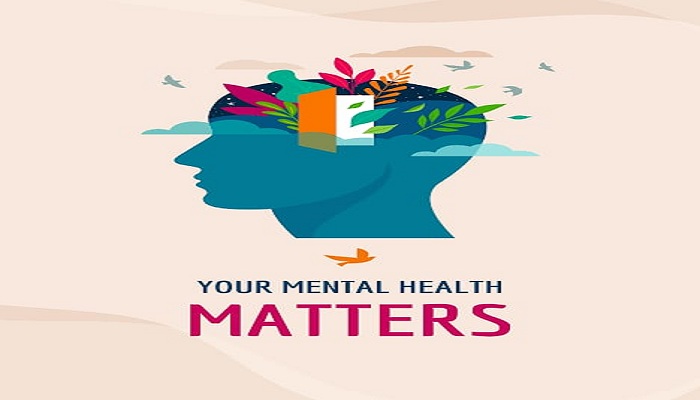Breaking Down Barriers: Addressing Mental Health Stigma

Breaking Down Barriers: Addressing Mental Health Stigma
Published On: 27-08-2024 | 4 min Read
Mental health stigma is a harmful and pervasive issue that affects individuals, families, and communities. It's a barrier that prevents people from seeking help, and it's rooted in misconceptions, myths, and negative attitudes. By educating ourselves and others, we can work to break down these barriers and create a society that values and supports mental health. This requires a cultural shift, one that encourages empathy, understanding, and acceptance. We need to recognize that mental health is just as important as physical health, and that seeking help is a sign of strength, not weakness. By working together, we can create a world where everyone can thrive, without fear of judgment or discrimination.
Breaking Down Barriers: Addressing Mental Health Stigma
Mental health stigma is a pervasive issue that affects millions of people worldwide. It’s a barrier that prevents individuals from seeking help, hinders recovery, and perpetuates suffering.Mental health stigma refers to the negative attitudes, beliefs, and behaviors that surround mental illness. It’s the unfair treatment, prejudice, and discrimination that people with mental health conditions face.
Lack of knowledge regarding mental health stigma can lead to misconceptions and myths about mental illness,negative attitudes and beliefs about mental health, discrimination and prejudice against individuals with mental health condition, social isolation and exclusion, reduce quality of life, decreased self esteem and increase risk of mental health crises.
Some myths and facts about mental health stigma:-
Myth 1: People with mental illness are violent and dangerous.
Fact: The vast majority of people with mental illness are not violent and are more likely to be victims of crime.
Myth 2: Mental illness is a sign of weakness.
Fact: Mental illness is a medical condition, not a character flaw.
Myth 3: People with mental illness can simply “snap out of it”.
Fact: Mental illness is a complex condition that requires treatment, support, and understanding.
Myth 4: Mental illness only affects certain types of people.
Fact: Mental illness can affect anyone regardless of age, gender, race, or background.
Myth 5: People with mental illness are less intelligent or capable.
Fact: Mental illness has no bearing on intelligence or capability.
Myth 6: Mental illness is contagious.
Fact: Mental illness is not contagious and cannot be spread from person to person.
Myth 7: Mental illness is a personal failing or moral weakness.
Fact: Mental illness is a medical condition that requires treatment and support.
Myth 8: People with mental illness can never recover.
Fact: With proper treatment and support, many people with mental illness can and do recover.
NSMS NURSING INSTITUTE supports the cause of raising awareness among the masses regarding the false perceptions of mental illness. This create a huge problem in the society. Below, I discuss some ways by which the false perceptions regarding mental illness is reduced to some extent:-
- Educate people about mental health and its importance, and provide accurate information to dispel misconceptions and myths.
- Share personal stories and experiences to raise awareness and put a face to mental health, helping others understand and relate.
- Use respectful language and avoid stigmatizing terms or labels that perpetuate negative stereotypes.
- Encourage supportive environments in schools, workplaces, and communities where people feel comfortable discussing mental health.
- Engage in open conversations and listen without judgment, providing a safe space for others to share their struggles.
- Promote help-seeking behavior and encourage support from professionals, friends, and family.
- Collaborate with healthcare providers, schools, and community organizations to promote mental health awareness and reduce stigma.
- Emphasize mental health as a vital aspect of overall health and well-being, and highlight the benefits of seeking help and support.
- Address systemic barriers to mental health care, such as access and affordability, and advocate for policy changes that support mental health.
- Celebrate progress and recognize efforts to reduce stigma, and foster a culture of understanding and acceptance.
- Encourage media representation and portrayals of mental health that are accurate and respectful.
- Provide educational resources and materials for schools and communities to promote mental health literacy.
- Offer training and workshops for healthcare providers, teachers, and other professionals to recognize and address mental health issues.
- Create support groups and online communities for people to share their experiences and connect with others.
- Develop and promote mental health-friendly policies in workplaces and schools.
- Host events and campaigns to raise awareness and reduce stigma, such as mental health awareness months or walks.
- Emphasize the importance of self-care and stress management in maintaining good mental health.
- Provide resources and support for family members and caregivers of people with mental health conditions.
- Foster a culture of empathy and understanding, and encourage people to speak up when they see stigma or discrimination.
Mental health stigma is a formidable obstacle, but together wecan break it down. By understanding its complexities, consequences, and types, we can begin to dismantle it. Let’s create a society that supports mental health, encourages openness, and promotes inclusivity.
